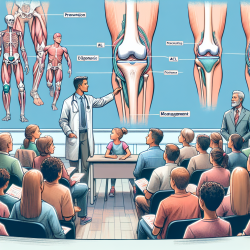Occupational Safety and Health (OSH) professionals play a crucial role in ensuring workplace safety and managing health-related issues. However, a significant gap exists in their education concerning chronic pain—a condition affecting 20% of adults globally. This blog delves into the findings of a study by Odenigbo et al., highlighting the importance of chronic pain education for OSH professionals and offering insights on improving their skills.
Understanding Chronic Pain's Impact
Chronic pain is a pervasive issue that affects individuals' daily lives, including their work performance. It is often misunderstood and stigmatized, leading to inadequate management in both clinical settings and workplaces. The economic burden of chronic pain is substantial, with significant costs due to lost productivity, healthcare expenses, and disability benefits.
The study by Odenigbo et al. emphasizes that OSH professionals are often the first point of contact in workplaces for managing health issues related to chronic pain. Despite this critical role, many OSH professionals lack adequate training in understanding and managing chronic pain.
Key Findings from the Research
- A significant portion of OSH students had not received any training on chronic pain management in recent years.
- Many students were unaware that chronic pain affects 1 in 5 adults.
- The study revealed that OSH students exhibited poorer knowledge and more negative attitudes towards chronic pain sufferers compared to healthcare professionals.
The findings underscore the need for integrating chronic pain education into OSH training programs to equip these professionals with the necessary skills to manage such conditions effectively.
Improving Skills Through Education
The study suggests several ways to enhance the skills of OSH professionals through targeted education:
- Incorporate Pain Education into Curricula: Making chronic pain education a mandatory part of OSH training programs can significantly improve knowledge and attitudes towards managing this condition.
- Continuing Education Opportunities: Providing ongoing education for current OSH professionals can help them stay updated on best practices in pain management and rehabilitation.
- Sensitivity Training: Educating OSH professionals about the biopsychosocial aspects of chronic pain can foster empathy and reduce stigmatization towards sufferers.
The Role of OSH Professionals in Managing Chronic Pain
OSH professionals are instrumental in developing policies and procedures that ensure safe working conditions and support workers suffering from chronic pain. By enhancing their understanding of chronic pain, they can better advise employers on creating supportive environments that facilitate rehabilitation and prevent further injuries.
The integration of comprehensive chronic pain education into OSH training programs will not only benefit individual workers but also contribute to overall workplace productivity and safety.
A Call to Action
The research by Odenigbo et al. serves as a call to action for educational institutions, employers, and policymakers to prioritize chronic pain education for OSH professionals. By doing so, we can create more inclusive workplaces that recognize the challenges faced by those suffering from chronic pain and provide them with the support they need.










